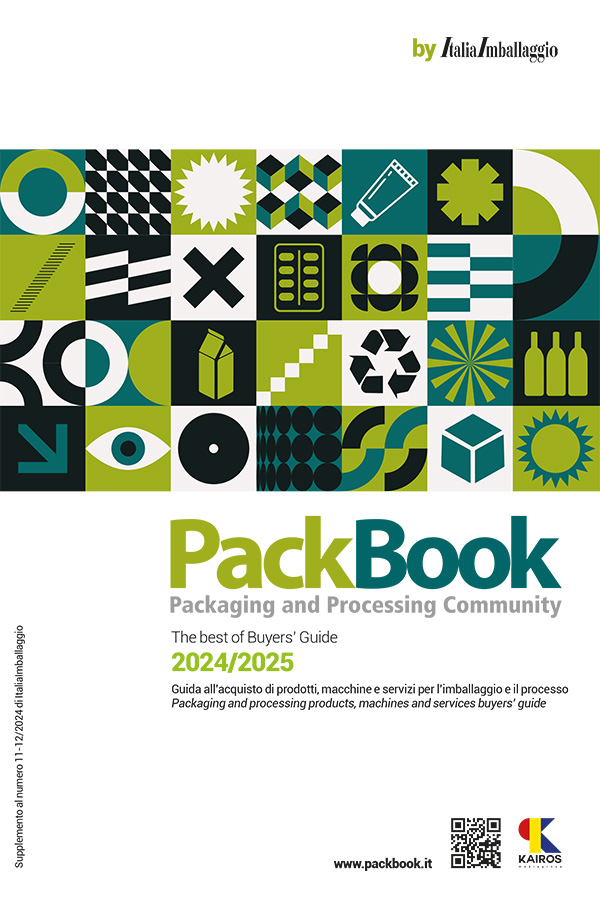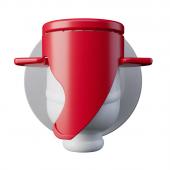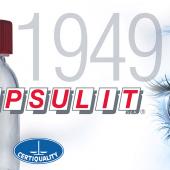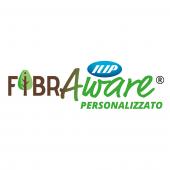A day dedicated to FCMA
Updates and new perspectives of the legislation on FCMA, Food Contact Materials and Articles. Contributions from the conference organised by the Italian Packaging Institute.
By Marinella Vitulli (Food Contact Center)
After two years in which the event had been forcibly organised remotely, the customary annual event on FCMA organised by the Italian Packaging Institute finally returned, in an atmosphere of great enthusiasm, in “physical” mode on 20 December 2022, with the participation of the working group of Dr Maria Rosaria Milana, Expert at EFSA, already Head of the National Reference Laboratory on Food Contact Materials of the ISS (Italian National Institute of Health).
The event was once again of great interest and was attended by an audience composed of many experts and insiders in the field. The morning was dedicated to an illustration of the laws in force and of the important regulatory new features in the offing while, in the afternoon session, there was the question time with interaction with those present, providing practical answers to those who intervened.
The presentations of the ISS team described the current situation relating to the European and national regulatory framework, with a focus on new trends and new laws, particularly regarding the Regulation for the use of recycled plastic in contact with food.
Changes to the legislation: current situation and activities in progress
The contribution of Dr Maria Rosaria Milana opened the day with a general review of FCMA legislation. The key principles reported in the framework regulations Reg EC 1935:2004 and Reg EC 2023:2003 were illustrated, pointing out that FCMA are part of food legislation and comply with the same food sector rules as far as official controls are concerned
- It was pointed out that, in 2020, the general revision of the European Commission’s “Farm to Fork” Strategy was announced, which is a plan developed by the Commission to guide the transition towards a fair, healthy and environmentally friendly food system. Consequently, member countries, when implementing regulations and laws, must align themselves with EU policies and are bound to respect the objectives set by the Commission.
- With regards to changes in FCMA legislation, it is very likely that the strategy will be based on shifting the focus of the final FCMA to giving priority to the assessment and management of the substances and on the use of safer and more sustainable alternatives. Work will be carried out on defining better addressed rules in relation to final characteristics (FCMA in contact with food), to identify the level of safety and how to achieve that level, including strengthening the Good Manufacturing Practices rules.
- With regards to the priority value of substances, the safety assessment must include NIASs (non-intentionally added substances), CMRs (carcinogenic, mutagenic and toxic to reproduction substances), EDs (endocrine disruptors, persistent, bio-accumulative and toxic substances), and other substances with specific properties (e.g., substances in nanoform).
- There must also be clear support for the development of safer and more sustainable alternatives, such as, for example, production methods based on plants or bio-based substances; rules will be developed for supporting all forms of “safe” re-use and for including all recycling technologies, ensuring consistency with environmental law.
- Included among the possible actions to take, is a strong promotion of the exchange information on compliance and control, to improve the quality of, and accessibility to, information along the supply chain, through clear rules on the data to be available for sharing, introducing the Declaration of Conformity for all FCMAs (already mandatory in Italy for some time) and possibly digitalizing the information to support enterprises.
- It is also possible to refer to bodies other than the Competent Authorities for official controls, such as “Delegated” bodies (as per the Regulation on Official Controls 625/17) or “Notified” bodies. The development of further technical standards will also be important.
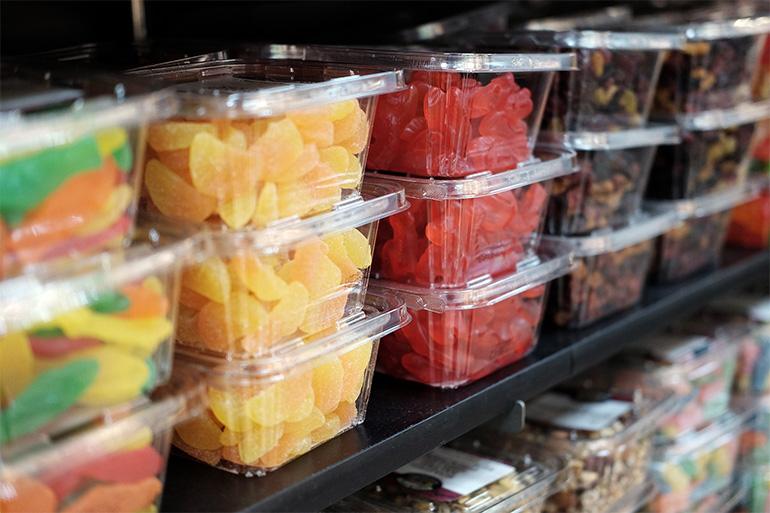
How specific European Community initiatives are evolving
The experts then dealt in detail with the activities carried out by specific institutional technical working groups.
Polymeric materials: lack of clear rules
With regards to the technical working groups of the EU Commission - DG Santè, the document published in June 2022, the Commission Staff Working Document on FCMA legislation, was described.
Considerations lead to the conclusion that the rules on polymeric materials are very detailed but sometimes difficult to interpret, and that regarding materials different from plastic, the approaches of single States, in the absence of harmonised rules, do not help to provide applicative rules for companies.
At the same time, innovative materials - such as active and intelligent materials - are struggling to take a foothold in the market due to the absence of clear rules. Work is currently in progress on defining the main policy themes and general and more specific solutions, assessing feasibility and impact in order to decide which solutions to adopt; it will then be possible to work on legislative proposals. This progressive path will probably be completed after 2024.
Amendments to the Plastics Regulation
The EFSA team then illustrated the evolution of Community work, describing, in particular, the 16th, 17th, and 18th amendment to the Plastics Regulation (EU) 10/2011, updates on Bamboo and the new Recycling Regulation.
- New substances will be introduced in the 16th amendment of the Plastics Regulation; in addition, the elimination of the substance FCM 96 “Flour and wood fibres, untreated” is planned. Salicylic acid and lauric acid will also be eliminated and there will be new limits for a number of phthalates.
- The 17the amendment will introduce clarification regarding purity requirements and the reprocessing of plastics (processing waste and scraps) and rules on migration tests for multi-material and multi-payer materials; a modification of the list of Biocides is probable, as well as a revision of the conformity declaration.
- With regards to the draft of the 18th amendment, a significant aspect is that a migration limit for styrene will be introduced, for which the traditional food simulant migration tests show difficulties relating to an overestimation of migration. The laboratories are, therefore, working on defining methods of migration into food.
Regulation (EU) 1616/2022 on recyclable plastic materials
A specific presentation then focused on Regulation (EU) 1616/2022 on recyclable plastic materials, a fundamental argument given the needs correlated to the circular economy.
The new regulation has an important impact, as it establishes a new legal basis for all processes. The processes will have to be managed through a quality assurance system that guarantees conformity with Regulation (EU) 1616/2022 and Regulation (EC) 2023/2006. The recycling process must be able to reduce any initial contamination to levels that are not a risk to human health; the decontamination phase is, therefore, fundamental, and the use of adequate technologies (such as the mechanical recycling of POET), and to new technologies (for example, the recycling of other plastics) is permitted, as well as schemes such as the closed loop.
The process must guarantee compliance with the provisions of art. 3 Reg (EC) 1935/2004, establish conditions of use and any restrictions of use, demonstrating safety using a specific declaration of Conformity. It will be necessary to implement ad hoc decontamination evaluation strategies for the polymers subject to assessment and analysis for the identification of unexpected contaminants. It is also necessary to present a summary document for monitoring conformity to be delivered to the Competent Authority, the Compliance Monitoring Summary Sheet (CMSS).
With regards to work currently in progress by the Europe Commission, this is focusing on decisions relating to the processes already evaluated, on the setting up of a Community Register, and on the publication of applicative Guidelines, in particular on the Declaration of Conformity and CMSS. The following addresses related to the activities in progress on the part of the European EURL FCM Laboratory, and the laws currently in force on Plastics, Paper and Cardboard, Metals and alloys.
Question time: answers to the companies
In the afternoon of December 20, a question time session was held, with written questions from attendees during the morning and answers from the Italian National Institute of Health team followed by comments on operational aspects. Again this year, the debate focused primarily on the new developments introduced with relation to “ceramics and glazed articles”, on the management of ubiquitous contaminants such as perfluoroalkyl substances (PFAS), Bamboo materials and the limit for styrene.
The questions were many and the large audience present were able once again to appreciate the expertise and availability of the Italian National Institute of Health working group to discuss the complicated issues relating to Food Contact Material legislation.
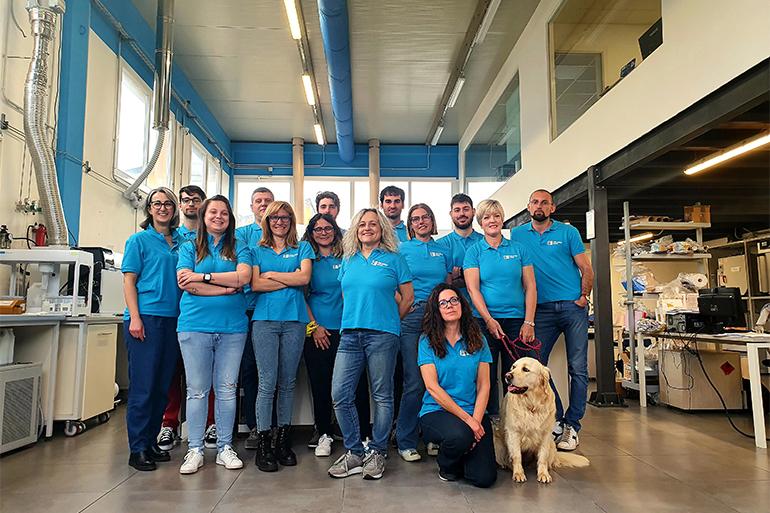
Food Contact Center: a project in progress
Established in Pistoia in 2016 through the initiative of Marinella Vitulli, the Food Contact Center Srl - the centre that provides specialist analysis services on materials - is today also operating in the materials laboratory in Brescia and in the Cuneo offices.
|
|
|
A team composed of over 20 qualified technicians makes available to customers its years of experience in the study and analysis of packaging and materials, offering a customised and tailored service, useful for obtaining products which are technologically suitable and safe for particular needs through a targeted strategy, guided by expert knowledge of materials and of the regulations associated with markets, with a view to sustainability and the rationality of controls. In 2022, a new company was created out of the synergy between the Food Contact Center and Lisa Filindassi: Food Contact Services Srl, which deals with consultancy and training, setting up tailored projects for enterprises. Specifically, it provides regulatory updating services and online consultation regarding global legislation on FCMA (Food Contact Materials and Articles), supporting companies in the definition of a strategy or of a self-control manual, planning the assessment of risk.
In this regard, it’s possible to operate through targeted conformity tests, but not only. Tests are not the only form admitted for the definition of conformity: with adequate assessments guided by specific skills, it’s possible to associate a limited number of analytical tests with other calculations or considerations, for example, correlated computational migrations, or estimation of simulants and pejorative situations, aimed also at associating the samples tested with various references, also through the evaluation of the thicknesses, ingredients and process used; it’s possible, in this way, to programme sustainable test plans for companies, which together with other skills allow for the definition of the supporting documentation.
Food Contact Center is also specialised in the evaluation of consumer exposure and in the performance of migration tests of food contact contaminants, including migration of Bisphenol A and metals such as, for example, Aluminium and Iron in food, key aspects also for evaluating the conformity of machines and appliances. Evaluation of NIAS (Non-Intentionally Added Substances) through Untargeted analytical techniques, is also fundamental. This is an area on which the Centre has become specialised through studies and the development of libraries and databases in collaboration with the University of Pisa and Florence and with the instrumentation producer, Sciex. With regards to analytical strategies, the Centre actively collaborates with national and international working groups such as, for example, commissions from GIFLEX, the Italian Packaging Institute and ILSI.
After the tests, Food Contact Center&Services can provide further assistance in the consequent drawing up of conformity declarations, as provided for by law, as well as the optimisation and control of company management systems, in the context of voluntary certifications, also through the carrying out of Accredia accredited inspection visits according to ISO 17020. Other aspects on which the team supports companies are in areas related to life-cycle assessments, the planning of challenge tests for recycled materials, eco-design and environmental impact, and labelling in compliance with environmental legislation pertaining to European and non-EU laws.
